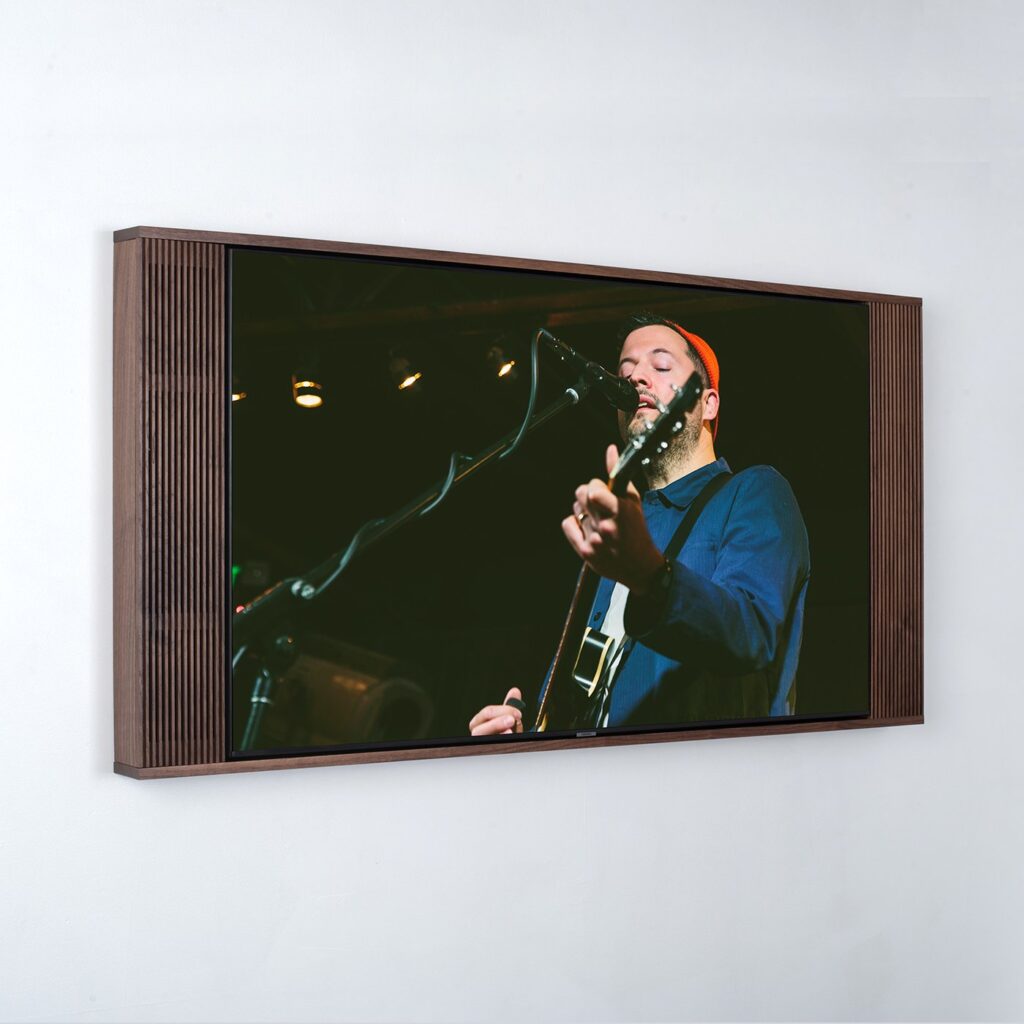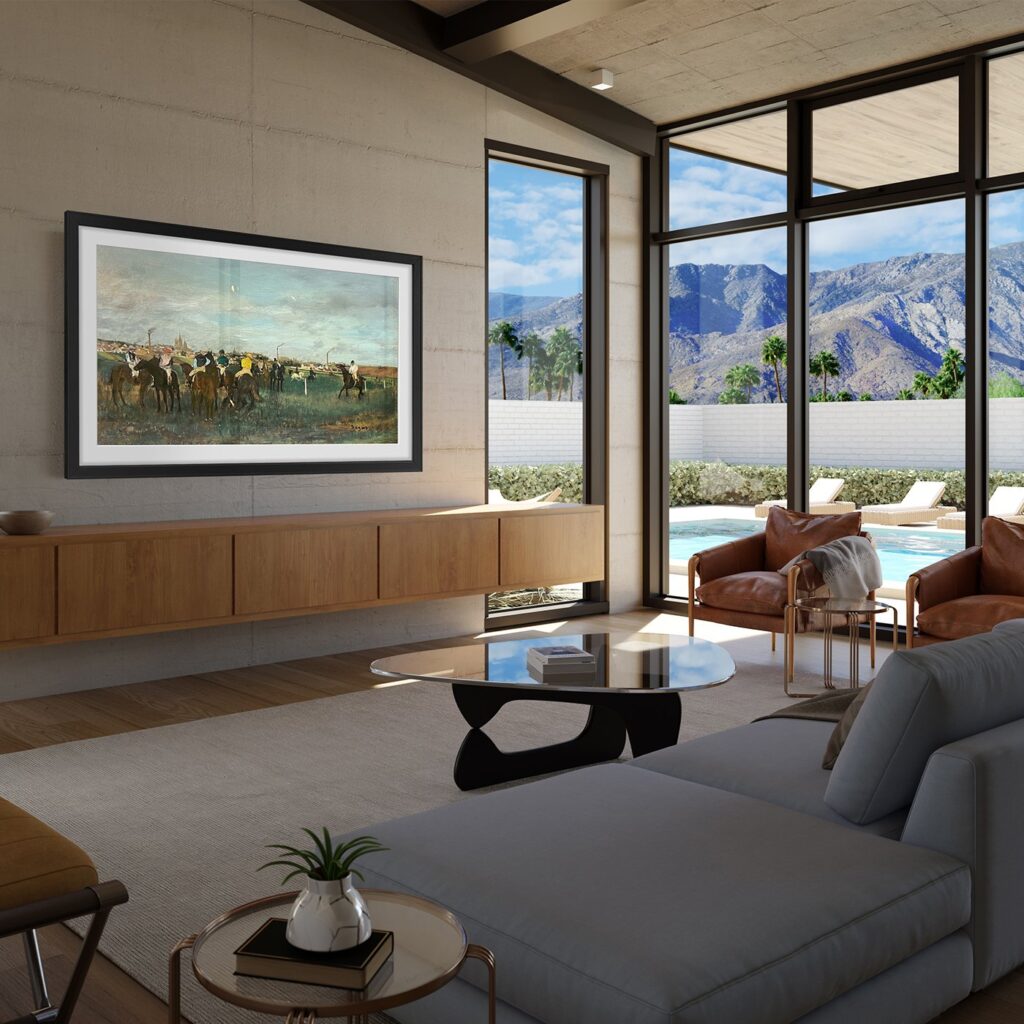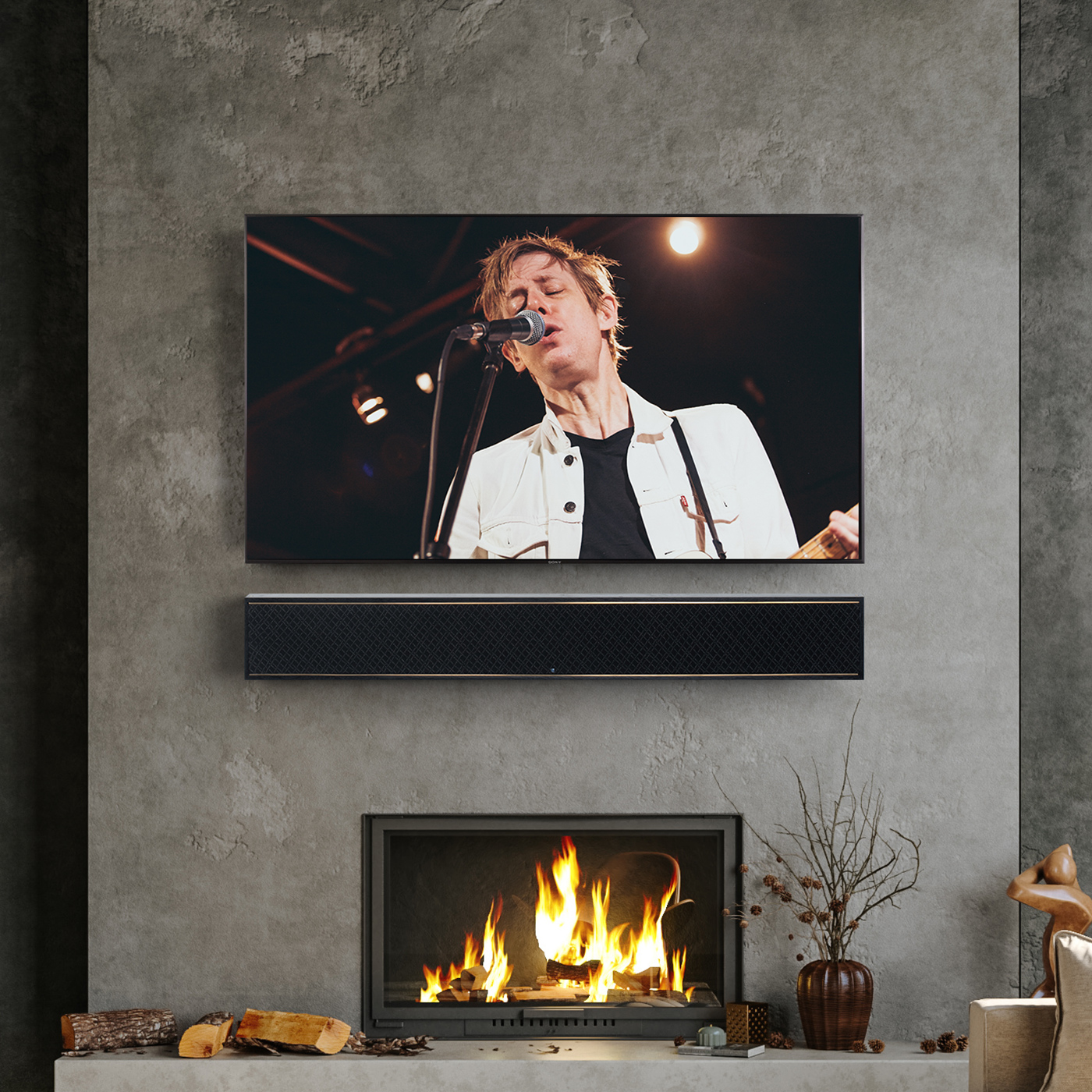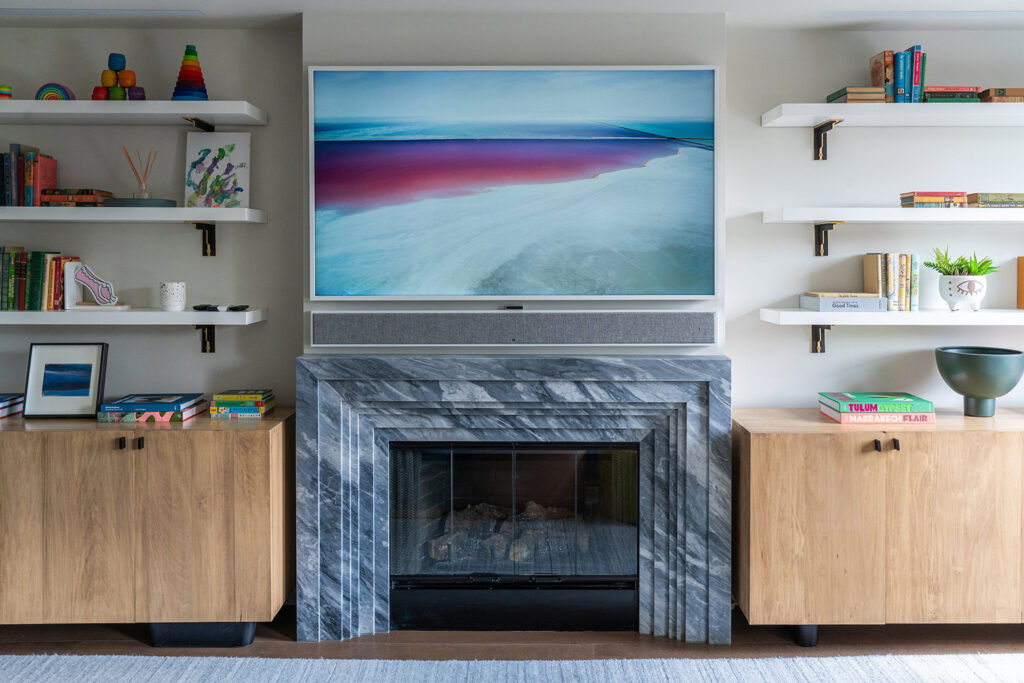In the ever-evolving landscape of technology and design, the modern family gathering space has become a place where immersive audio-visual experiences blend with the aesthetics of daily life. Distinct from the curtained basement Home Theaters of the past, today’s Living Space Theater is an environment where speakers, soundbars, and TVs are as much a part of any room’s design as the furniture. More and more, modern homeowners are seeking this harmony of functionality, aesthetics, and performance in the spaces where they live and spend time with loved ones.
 This concept isn’t new—it harkens back to the Mid-Century-Model style of the 50s and 60s. A time when design innovation was booming, and TVs were making their way into every American living room right alongside ornate, stylized media cabinets with built-in speakers. Back then, the demand was for technology that not only kept up with the times but also added to the style of the room. TVs, radios, and stereos were large, furniture-like pieces, and so they required furniture-like aesthetics, including modern shapes, hardwood finishes, metallic embellishments, and contemporary fabrics. Visionaries like Charles Eames and Dieter Rams knew that thoughtful, intuitive design came from both function and feeling—and the latter began with the experience of seeing an object within its surrounding space.
This concept isn’t new—it harkens back to the Mid-Century-Model style of the 50s and 60s. A time when design innovation was booming, and TVs were making their way into every American living room right alongside ornate, stylized media cabinets with built-in speakers. Back then, the demand was for technology that not only kept up with the times but also added to the style of the room. TVs, radios, and stereos were large, furniture-like pieces, and so they required furniture-like aesthetics, including modern shapes, hardwood finishes, metallic embellishments, and contemporary fabrics. Visionaries like Charles Eames and Dieter Rams knew that thoughtful, intuitive design came from both function and feeling—and the latter began with the experience of seeing an object within its surrounding space.
However, as technology advanced through the decades, a visual contradiction began to emerge between design and AV. The default look for TVs, speakers, and other tech became austere, black, and plastic. Some addressed this newfound clash by segmenting their best tech into a dedicated media room, while others chose to conceal it behind walls or cabinets. In either case, technology was seen as something to hide away; an ugly necessity whose visuals were a challenge to overcome, rather than an opportunity for enhancement.

Leon, a trailblazer in AV and technology solutions, understands the importance of closing this gap. They aim to reshape the narrative, acknowledging the clash between AV teams and design-conscious leaders. By prioritizing both design and technology, Leon stays ahead in delivering outcomes that satisfy the increasing demand for an uncompromising quality and design partnership.
Becoming design-aware means considering how colors, materials, and finishes impact space planning. Many of Leon’s top products, like the custom-fit hardwood Edge TV frame, are both visually striking and simultaneously concealed into the style of the space around them: transforming visually unappealing pieces of technology into warm, inviting assets by covering unsightly plastic bezels and visible wiring with a beautifully finished piece of American craftsmanship.

Working closely with technology integrators, architects, and interior designers, Leon creates solutions that strike the perfect balance between performance and design. Meticulously designed and handcrafted, their products exemplify this approach, from the Edge’s ability to give an elevated look to any TV, to the customizable on-wall Ente Art Soundtile, to the newly released Studio Frame—which transforms certain Sony BRAVIA XR displays into works of art that react to the space around them.
Even Leon’s flagship soundbar, the Horizon, is built to match the width of any TV, with a variety of grille fabric options to allow for an intentional, “built-in” appearance that blends with its surroundings. These solutions are designed to fit into spaces like the Living Space Theater, where comfort and style are no longer at odds with quality and entertainment.

As the Living Space Theater concept evolves, Leon stands at the forefront, reshaping the narrative of technology and design integration. The commitment to creating immersive audiovisual experiences that align with end users’ living spaces and design styles is evident in the way each Leon product seamlessly and uncompromisingly blends technology with design.
Click here to learn more about Leon Speakers’ solutions.
A version of this article first appeared on the HTA Certified website.
